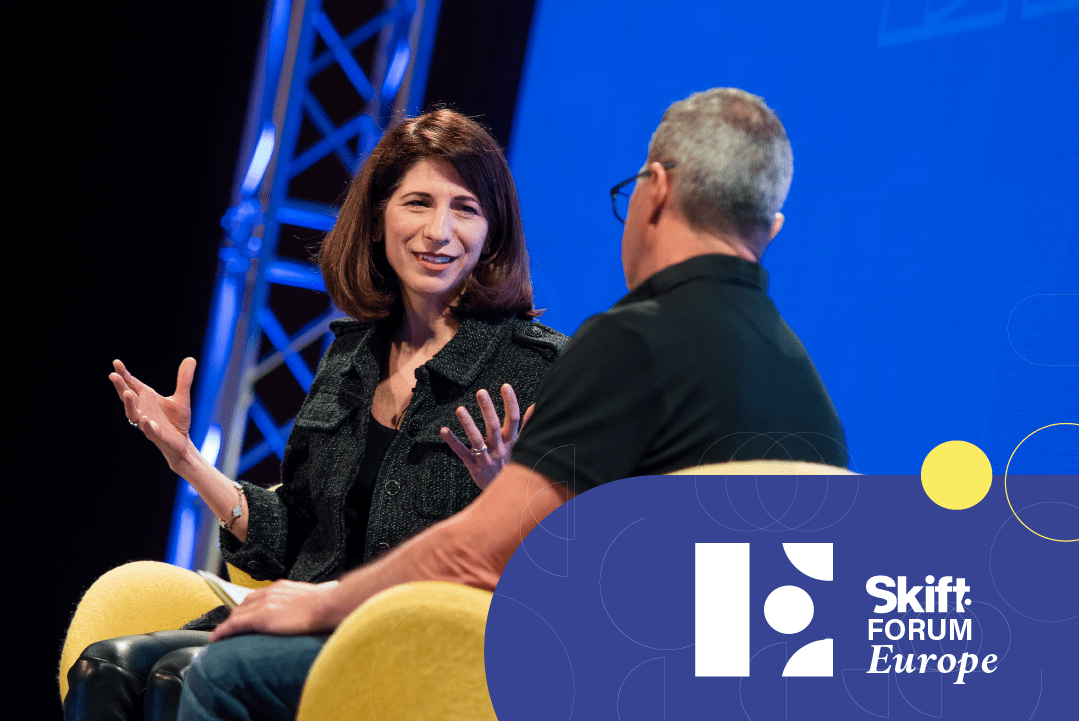Full Video: Expedia for Business President at Skift Forum Europe 2022

Skift Take

Skift Forum Europe
Skift Forum Europe was held in London, England on March 24, 2022. Find out about future Skift events through the link below.Ariane Gorin, the president of Expedia for Business, does have concerns that possible Covid surges later this year could put a dent in the brand's travel recovery. Nevertheless, Gorin told Skift Executive Editor Dennis Schaal at Skift Forum Europe on March 24 she expects the Expedia Group to have a strong summer in Europe. Gorin said her confidence stems from her brand seeing a 65 percent in searches in the United Kingdom for the Easter period as destinations worldwide eased travel restrictions.
Watch the full video of the conversation, as well as read a transcript of it, below, to hear what Gorin said about her optimism for a strong summer in Europe, living with Covid going forward, some of the company's recent deals, and much more.
https://www.youtube.com/watch?v=xXUci6RjeG4&t=18sDennis Schaal: Good morning, London. People online, good morning. Good afternoon. We see you, don't we Ariane? Don't we see them?
Gorin: We do. Good morning.
Schaal: Thanks for being here.
Gorin: It's my pleasure.
Schaal: President of Expedia for Business. That's not Expedia Corporate Travel, right?
Gorin: No, it is not.
Schaal: Please explain to everybody what your fiefdom is.
Gorin: Oh, my fiefdom?
Schaal: Your fiefdom.
Gorin: So Expedia for Business is actually an entity that we created last summer. And for the first time at Expedia Group, we've brought together all of our partnership businesses into one team. So that means it's the teams that are working on partnerships with hotels and airlines who are supplying to our brands and to our marketplace, the team that's working with advertisers and the team that's working with other travel companies that we power. And in fact, the idea behind it all was to say, we want to be able to talk to partners and if you're a hotel to say, "Look, yes, you want to distribute through us. You may want to advertise with us." We might power your package business and making it such that there's only one person and one team that you need to talk to, we think will really facilitate the relationships and open up more opportunity for everyone.
Schaal: So it's a significant chunk of Expedia's business. I think your B2B segment was about 17 percent of revenue in 2021.
Gorin: Yeah. That's the revenue that we do through our B2B partners. So we have our brands and then the B2B partners. And then of course thi

